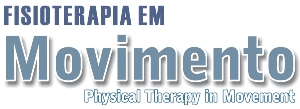INTRODUCTION: Physical activity that is important for people functional autonomy at old ages is crucial. Some factors limit elderly people in this kind of programs. Pain is one of them. This study examined whether a physical activity program, structured for limiting pain feeling would ensure the adderence of an elderly group suffering from osteoporosis/osteopenia, and therefore, promote improvements in their functional autonomy. DEVELOPMENT: Thirty women with the above specified problem, 65 to 70 years old, divided into two groups defined on the basis of a pain diagnosis. METHODS: An exercises program previously defined by the fisiomotriz term was applied, being of low impact, characterized by slow changes in the joints, progressing to four difficult levels, distributed in 48 meetings. Data from the pain and functional autonomy, measured by the pain visual analogue scale and the GDLAM protocol were statistically studied and the index ALFA fixed was ± 0.05. The analisys of variance was the Kruskal Wallis, with the chi-square index of independence. RESULTS: The results revealed improved functional independence and decrease in pain, as reported by the participants with osteopenia/osteoporosis. This fact consequently implemented the adhesion of these by the end of the program. CONCLUSION: It was conclude the program fisiomotriz applied in elderly women with osteopenia and/or osteoporosis was an effective way in promoting the improvement of the functional autonomy of the elderly woman studied. This improvement can be attributed, at least in part, to decrease in pain as compared to levels reported priorly to the program initiation.
Pain; Functional autonomy; Ageing and exercise; Elderly





